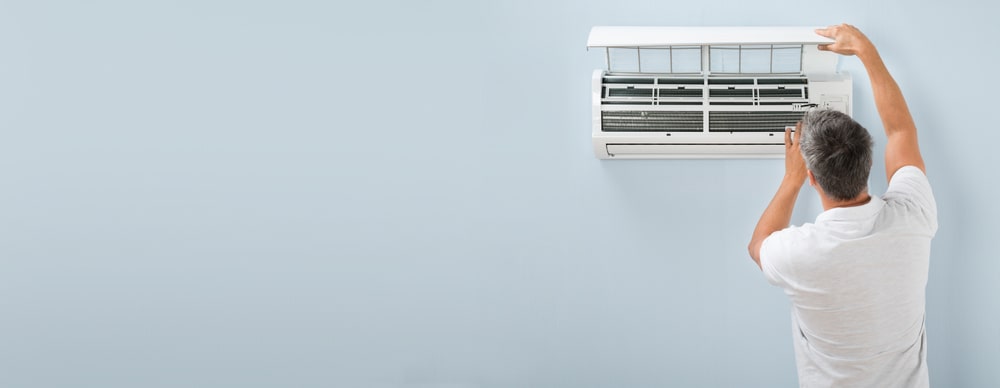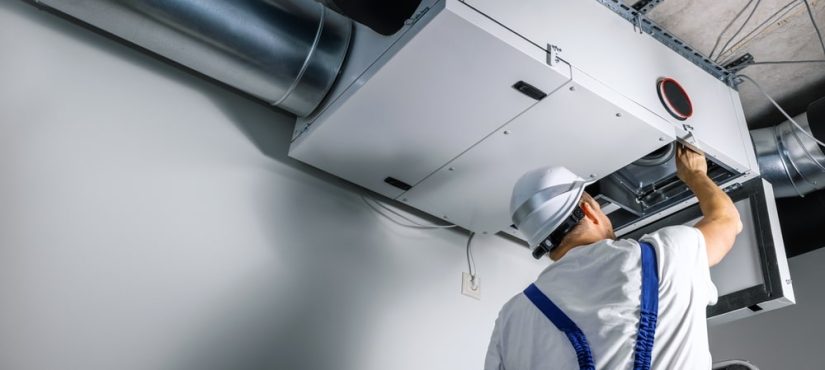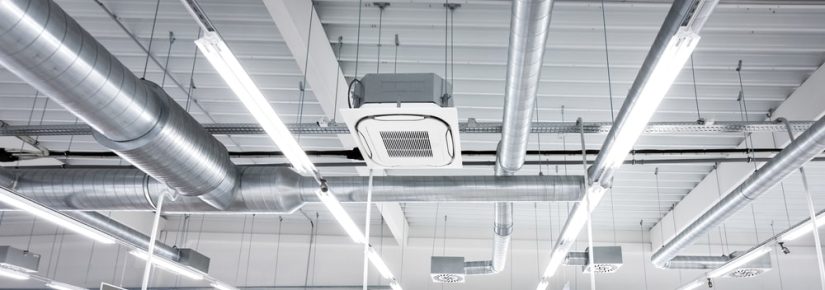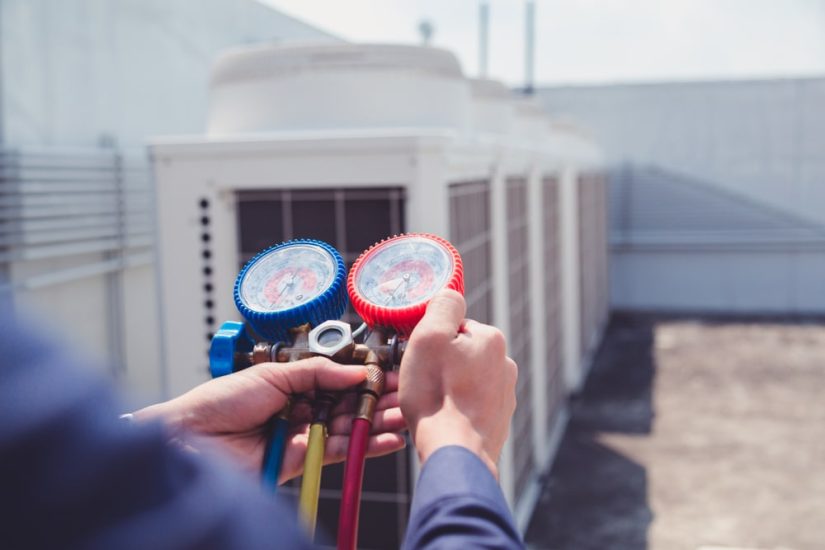
You should get regular inspection service for your AC system to ensure it is performing correctly and not just using your electricity. This is a proactive approach to keeping your AC in top condition. However, there are times when the AC has already developed some problems. Although some of these problems can be fixed through professional AC system upkeep and service, some issues require replacing the AC system. Here are ten common signs that it’s time to replace your air conditioner.
Refrigerant Leaks
It is a common misconception that coolant leaks are normal in air conditioners. An air conditioner is designed not to lose any refrigerant. If there is a loss of cool air in the HVAC system, it could be a refrigerant leak.
These leaks can occur when refrigerant escapes through small puncture holes in the refrigerant lines or cracks in the coil. There can also be a factory defect that leads to a refrigerant leak. Additional causes include weakening joints, improper air conditioning system installation, or excessive vibration.
There are a few ways you can tell there is a refrigerant leak in the air conditioning system. For instance, if your air conditioning unit takes longer than usual to cool your home, it can be a sign of refrigerant loss. A frozen evaporator coil, the AC unit leaking water, or any hissing sounds coming from the AC system are all additional signs of refrigerant leaks that indicate the need for a new air conditioning system.
A refrigerant leak can be fixed through repair; however, if you have had to do multiple repairs or the leak is too large, it might be more cost-effective to replace the entire cooling system.

Abnormal Noises
Modern air conditioners can make a whooshing or clicking sound during the start-up, which is normal. However, certain sounds indicate that your AC unit has a serious issue and could need a replacement. For instance, if a thumping or clanking sound is coming from the HVAC unit, there can be a problem with the system’s assembly.
Some air conditioning systems can make a rattling sound, which might mean there is a screw loose somewhere in the system, leading to more significant problems if it is not addressed. A clicking sound when air conditioners starts is not uncommon; however, frequent or loud clicking sounds from the air conditioning system could mean there is an issue with the system relay.
There are other types of unusual sounds that are worth investigating. This includes any loud hissing, rumbling, squealing, or buzzing noise. These abnormal sounds are just one of the signs your air conditioner needs to be replaced.
Unusual Odor
Another sign you should watch out for is unusual odors coming from your air conditioning system. It is not uncommon for a central air conditioner to become an ideal habitat for mold when it lacks regular maintenance.
Mold spores tend to thrive in warm and dark environments where excess dust and debris are accumulated, leading to an unpleasant smell. The smell can be most noticeable when you turn on the AC.
Continuing to use a cooling system that has been contaminated with mold or other harmful organisms could blow the mold throughout your home. This could result in all kinds of health problems for you and technical issues for the air conditioning system.
If the air conditioning unit produces a burning smell, the wires could be damaged, or some component has been burnt. This sort of problem could also be a potential fire hazard. A smell coming from the AC unit should not be something you ignore, so if you smell any unusual odors, get the AC checked by a professional to determine if it’s time for a new air conditioner.
Unexpected Increase in Energy Bills
While energy costs can fluctuate with seasonal changes, a constant increase in your energy bills could indicate an underlying problem with the air conditioner, such as a decline in the air conditioner’s energy efficiency.
A cooling system that is not serviced regularly is at higher risk of inefficient energy consumption, leading to an increase in energy bills. While regular maintenance of the AC unit would improve its life expectancy and minimize the risk of additional air conditioner-related problems, an AC unit replacement would still be required in some cases.
Another reason for a rise in energy bills could be damaged ductwork. When there is an issue with the ductwork of the air conditioning unit, cold air can escape the ducts. When that happens, the air conditioner works twice as hard to reach the desired temperature, leading to a significant increase in utility bills.

Diminished Air Flow
The airflow coming from the vent is supposed to blow and not trickle. However, if the air starts trickling, it could indicate a problem with the air conditioner’s compressor or blower motor.
The airflow of the AC unit can be diminished due to other reasons. For example, if the air filter is dirty, it would not only result in poor air quality but also lead to the evaporator coils freezing, which causes damage to the air conditioning system. This might not require an AC replacement; however, if the clogged air filter has damaged other components, you may need to install a new air conditioner.
Frequent Breakdowns
If your AC unit constantly breaks down, it might be a sign that you need to replace it. Even though repairs might fix it, the repair cost might be higher than a new AC. The most common reason for an AC unit frequently breaking down is improper drainage. If the water cannot leave the system, it can lead to internal leakage or corrosion.
Another reason for frequent breakdowns could be overheating. A faulty part, blocked airways, or other problems could result in the overheating of the AC. In addition, the air conditioner works twice as much if the outside atmosphere is extremely hot to keep the indoor air cool. This could lead to constant breakdowns in worn-out or older air conditioners.
Repairing an old AC is not cost-effective, so rather than wasting money on frequent repairs of the old air conditioning unit, you can get a modern air conditioner that requires less maintenance and energy.
Source: HomeGuide
The AC Is Past Its Warranty
The warranty of most new AC units is limited, as it may only cover certain parts, such as the compressor. A well-maintained AC should easily last longer than the warranty period. Unfortunately, many AC units start to experience problems due to a lack of proper maintenance, manufacturing defects, poor installation, or harsh environmental conditions.
Any costs for repairs on your A/C unit will come out of your pocket past the warranty period. So, you can invest in a new unit rather than spend money repairing the old AC system. When the warranty period of your AC unit is near its end, it might be the right time to consider a replacement. In most cases, an AC unit is going to last ten years, so anything beyond that is a bonus.
Poor Cooling Performance
Air-cooling systems typically work effectively when there is an optimum temperature in the surroundings. However, if the atmospheric temperature exceeds a specific limit, the energy efficiency of the air conditioning unit can decrease. This could lead to the AC blowing warm air.
However, a more concerning reason for poor cooling performance is defective parts, such as a faulty motor or a compressor, insufficient coolant, or dirty coils. For example, the condenser coils are responsible for dissipating heat outside; when the coils are dirty, the air conditioner can become less efficient. The unit could work at a reduced efficiency to keep the room cooled, but it would still not be enough.
Instead of making repairs to improve the air conditioner’s cooling, which can cost you more than the price of a new AC unit, it’s better to replace the entire AC unit.

Malfunctioning Thermostat
The thermostat is one of the essential components of any air conditioning unit because it controls the unit’s cooling. If the thermostat fails to function correctly, the HVAC system will not regulate the temperature as it should.
A thermostat can malfunction for several reasons, such as broken or damaged sensors, positioning the thermostat too close to an air vent or heat source, poor installation, and inadequate maintenance of the thermostat. If you set the thermostat manually but still cannot get the right temperature, meaning the room is either too cold or too hot, it could be an underlying problem with the thermostat.
Typically, when the thermostat cannot be programmed manually, meaning the buttons or the touch screen fail to work, it could indicate a problem with the entire unit. This could require the replacement of the air conditioner. When your AC unit is on an AUTO cycle, it should turn ON and OFF at the set temperature. However, if the AC does not follow the settings, it means the thermostat could be malfunctioning. Another sign of a faulty thermostat is an increase in energy bills.
If you notice that the thermostat in the HVAC system is not functioning properly, you could first check the batteries within the thermostat and, if required, replace them. You can seek the assistance of a reliable Houston HVAC technician. If the problem persists, replace your AC unit with a programmable thermostat.
Excessive Moisture in the AC System
It is not unusual for air conditioners in houses in warmer climates to have condensation all around the system. Still, if you notice excess water in the condensate drain pan or around the entire air conditioning system, there may be a condensation leak.
When the condensate line gets blocked by debris accumulated inside, the condensation can flow backward, causing an AC leak. Drain pans can also cause condensation leaks, which are common in old air conditioning systems. These drain pans can have holes and cracks that allow water to flow. If the problem is not fixed on time, it can lead to corrosion.
Another reason for moisture in your AC system could be low refrigerant levels that cause the condenser coils to freeze. When the temperature increases, the ice can melt and leak into the AC, causing problems that may require expensive repairs, such as repairing the condensation coils. If you notice excess moisture around or inside the AC unit, you can consider replacing the entire unit, as it may have already suffered from internal corrosion.

